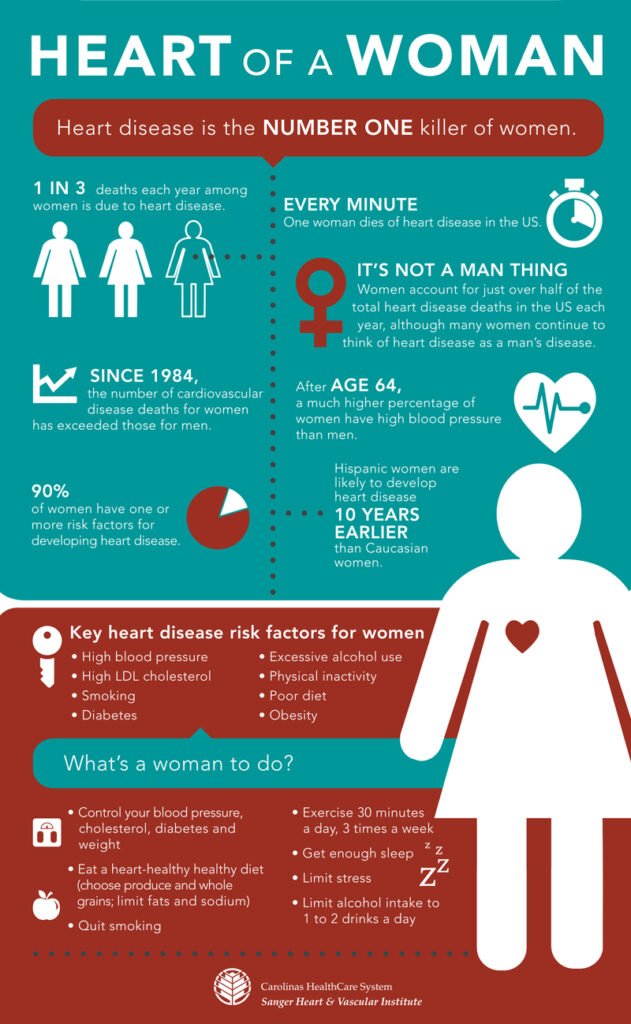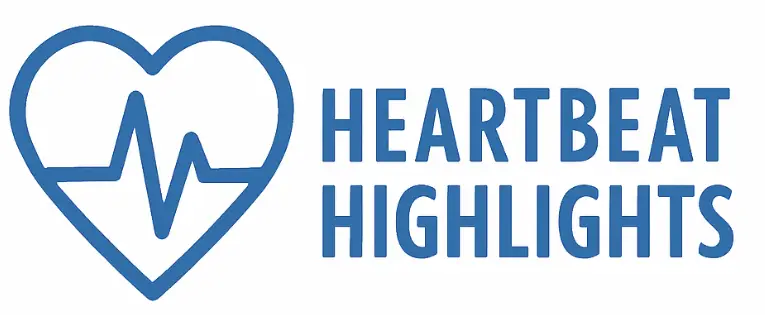Women’s cardiovascular health is a powerful key to living a longer, healthier life — here’s what makes it unique and why protecting your heart matters more than you think.

Introduction: Why This Matters
When we talk about living a long, vibrant life, we often think about diet, exercise, and avoiding bad habits. But for women, there’s one organ that deserves special attention — the heart. Cardiovascular disease (CVD) remains the leading cause of death in women worldwide, even though it’s often mistakenly thought of as a “man’s disease.”
Here’s the truth: women who actively care for their heart health can dramatically reduce their risk of heart attacks, strokes, and other cardiovascular complications, adding not only years but quality to their lives. The connection between women’s heart health and longevity is backed by decades of research, and understanding the unique aspects of female cardiovascular health is the first step to protecting it.
Women’s Heart Health Basics

The heart works the same way in men and women — a muscular pump that sends blood throughout the body. But research shows that the way heart disease develops, presents symptoms, and responds to treatment can be different in women.
For example, women are more likely than men to develop microvascular disease, which affects the tiny arteries of the heart rather than the large coronary arteries. This means that even when major arteries look clear on imaging, women can still experience chest pain and restricted blood flow.
Hormonal influences also play a role. Estrogen, a hormone that helps protect blood vessels, declines after menopause, increasing the risk of high blood pressure, high cholesterol, and plaque buildup. This shift makes postmenopausal women particularly vulnerable to heart disease.
Why Heart Disease Affects Women Differently
Heart disease in women often flies under the radar because symptoms may be less obvious than the “classic” crushing chest pain seen in men. Women may instead experience:
- Shortness of breath
- Fatigue
- Nausea or vomiting
- Back, neck, or jaw discomfort
- Lightheadedness
These subtler symptoms can delay diagnosis and treatment. In fact, studies show that women are more likely to be misdiagnosed when experiencing a heart attack, especially younger women under 55.
Additionally, certain conditions more common in women — such as spontaneous coronary artery dissection (SCAD) and Takotsubo cardiomyopathy (often called “broken heart syndrome”) — may not be well recognized in emergency settings.
Key Risk Factors for Women’s Heart Health
While many risk factors are shared between men and women, some are more impactful in women:
- High Blood Pressure – Women, particularly after menopause, are more prone to hypertension, which damages arteries over time.
- High Cholesterol – An imbalance of LDL (“bad”) and HDL (“good”) cholesterol can accelerate plaque buildup.
- Diabetes – Women with diabetes have a higher relative risk of heart disease than men with diabetes.
- Autoimmune Diseases – Conditions like lupus and rheumatoid arthritis are more common in women and can cause chronic inflammation that damages the heart and blood vessels.
- Pregnancy-Related Complications – Preeclampsia, gestational diabetes, and preterm delivery are early warning signs of future heart disease risk.
Understanding and managing these factors early is essential for lifelong heart protection.
The Longevity Connection
Multiple long-term studies confirm that women who maintain strong heart health live longer — and not just by avoiding heart attacks. Cardiovascular health impacts nearly every aspect of the body, from brain function to kidney health.
When your heart pumps efficiently, oxygen and nutrients reach every cell, supporting energy, cognitive clarity, and resilience against illness. On the other hand, poor cardiovascular health can silently damage organs for years before symptoms appear.
According to data from the Framingham Heart Study and Women’s Health Initiative, women who avoid major cardiovascular risk factors — such as smoking, uncontrolled blood pressure, and obesity — can add up to a decade to their lifespan compared to those with multiple risks.
How Prioritizing Heart Health Extends Life
Protecting your heart isn’t just about living longer — it’s about living better. Women who stay proactive about their cardiovascular health often experience:
- Lower rates of disability in older age, allowing them to remain active and independent.
- Better cognitive health, as strong circulation helps protect against vascular dementia.
- Improved quality of life, with more energy and fewer limitations from chronic illness.
Even small, consistent improvements — like maintaining healthy blood pressure or increasing physical activity — can yield substantial long-term benefits.
Real-Life Relevance: Spotting Warning Signs Early
One of the biggest barriers to protecting women’s heart health is the tendency to dismiss symptoms or attribute them to stress, fatigue, or aging. Many women are busy balancing work, family, and other responsibilities, making it easy to put their own health last.
If you ever notice unexplained shortness of breath, sudden fatigue, dizziness, or discomfort in your chest, back, or jaw, don’t ignore it. These may be early signs of a heart problem — even if they’re mild or intermittent.
When to Seek a Cardiologist’s Evaluation
If you have any combination of symptoms, personal risk factors, or a family history of early heart disease, a heart check-up can be invaluable.
A cardiologist can:
- Assess your overall cardiovascular risk
- Recommend appropriate diagnostic tests (such as an ECG, echocardiogram, or stress test)
- Help you monitor changes over time, especially through life stages like pregnancy or menopause
Early evaluation often means earlier intervention — and that can make all the difference.
The Future of Women’s Heart Health
The medical community is increasingly recognizing the importance of sex-specific research in cardiology. More studies are now focusing on how heart disease develops differently in women, leading to improved guidelines and diagnostic tools.
Wearable health technology — from smartwatches that detect irregular heart rhythms to portable home blood pressure monitors — is also empowering women to track their cardiovascular health more closely than ever before.
As awareness grows, more women will be equipped with the knowledge and tools to protect their hearts for the long term.
Conclusion: Your Heart Is Worth the Investment
Longevity isn’t just about luck or genetics — it’s about the choices you make every day. By understanding the unique aspects of women’s heart health, recognizing early warning signs, and seeking timely evaluation, you give yourself the best chance for a longer, healthier life.
Your heart has been with you through every moment of your life — it’s worth every effort to keep it strong.
References
- U.S. Centers for Disease Control and Prevention (CDC) – Heart Disease and Women
- American College of Cardiology – Cardiovascular Disease in Women
- Women’s Health Initiative Study
- Framingham Heart Study
Disclaimer
This article is for educational purposes only and is not a substitute for professional medical advice, diagnosis, or treatment. Always consult a qualified healthcare provider with any questions about your health or medical condition.









